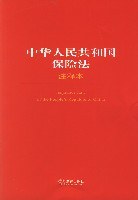

Masahiko Aoki and Ronald Dore have edited an authoritative account of the Japanese firm and the sources of its success, including contributions from some of the best, and best known, scholars in the field. The book represents an attempt to explain and understand aspects of the firm in the Japanese economic system, and to explain the corporate success of Japan. It is interdisciplinary in approach, containing both theoretical and empirical work, and has contributions from the fields of labour economics, comparative institutional analysis, information economics, finance, organizational theory, economic history, political science, and sociology. Chapters range from contemporary descriptions--of training (in overseas subsidiaries as well as Japan), of R&D structures, of product development practices, of finance and corporate governance, of trading relations, especially between small and large firms--to an historical overview of the evolution of Japanese management in the wartime planned economy. The book also situates Japan in the literature of economic analysis and in the on-going debate about trade-offs between equality and efficiency. The contemporary media would have us believe that the Japanese system of management--characterized by lifetime employment, emphasis on long-term, slow consensual decision-making, heavy investments in training, R&D, and quality, close inter-enterprise ties, and short rations for shareholders--is in crisis and about to change fundamentally. This book will enable the reader to decide just how solid the foundations of the Japanese enterprise system are, and to identify the rationale that lies behind it.
具体描述
读后感
评分
评分
评分
评分
用户评价
相关图书
本站所有内容均为互联网搜索引擎提供的公开搜索信息,本站不存储任何数据与内容,任何内容与数据均与本站无关,如有需要请联系相关搜索引擎包括但不限于百度,google,bing,sogou 等
© 2025 book.wenda123.org All Rights Reserved. 图书目录大全 版权所有




















